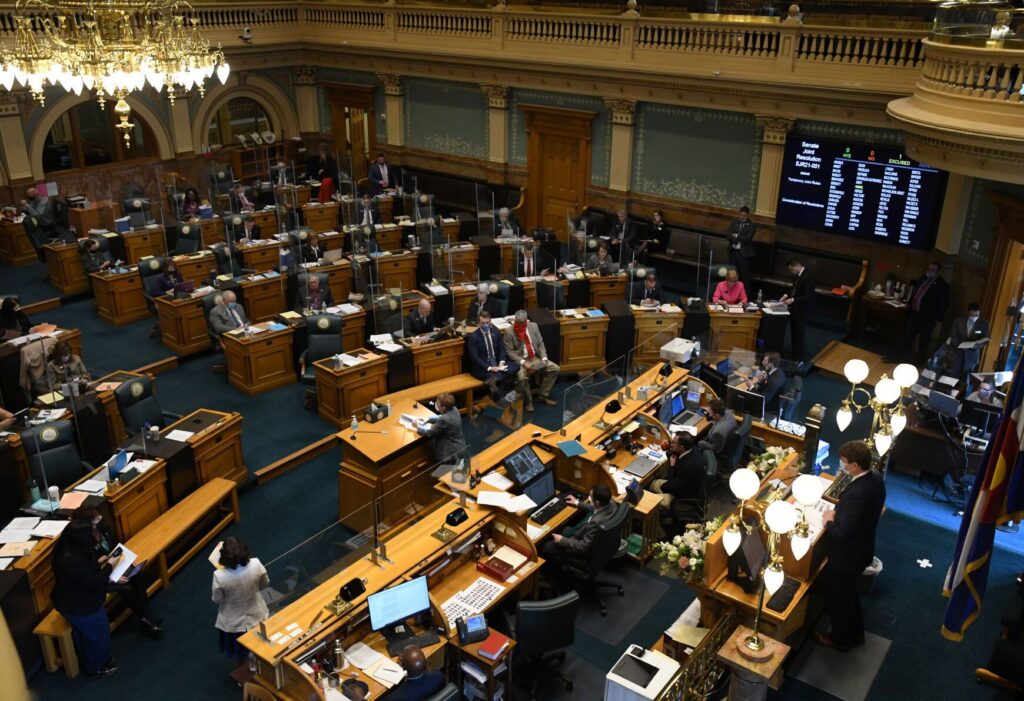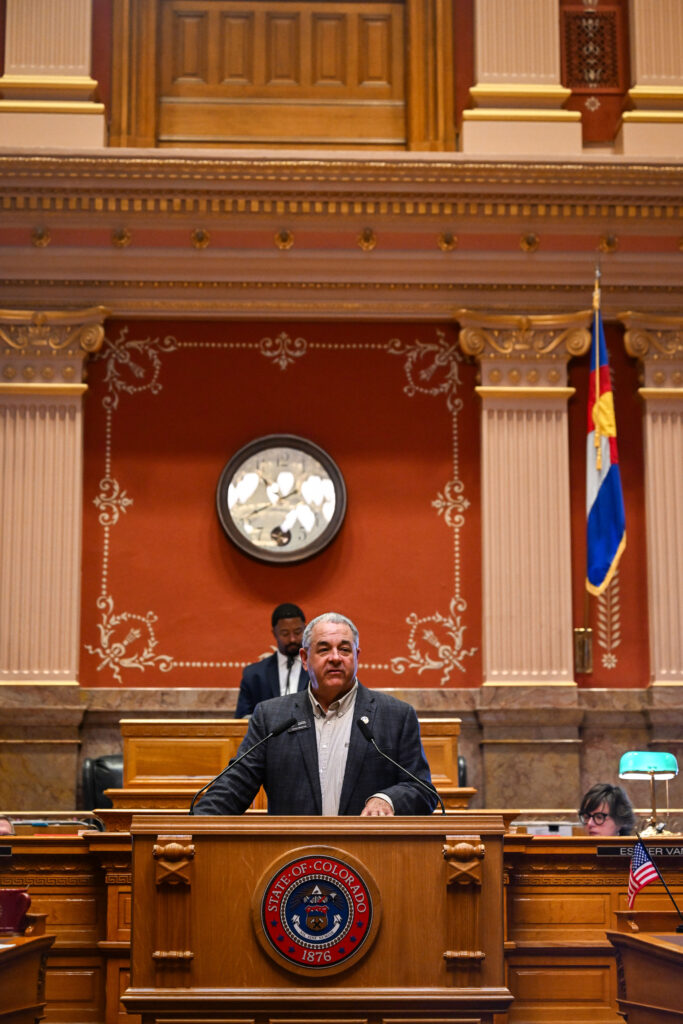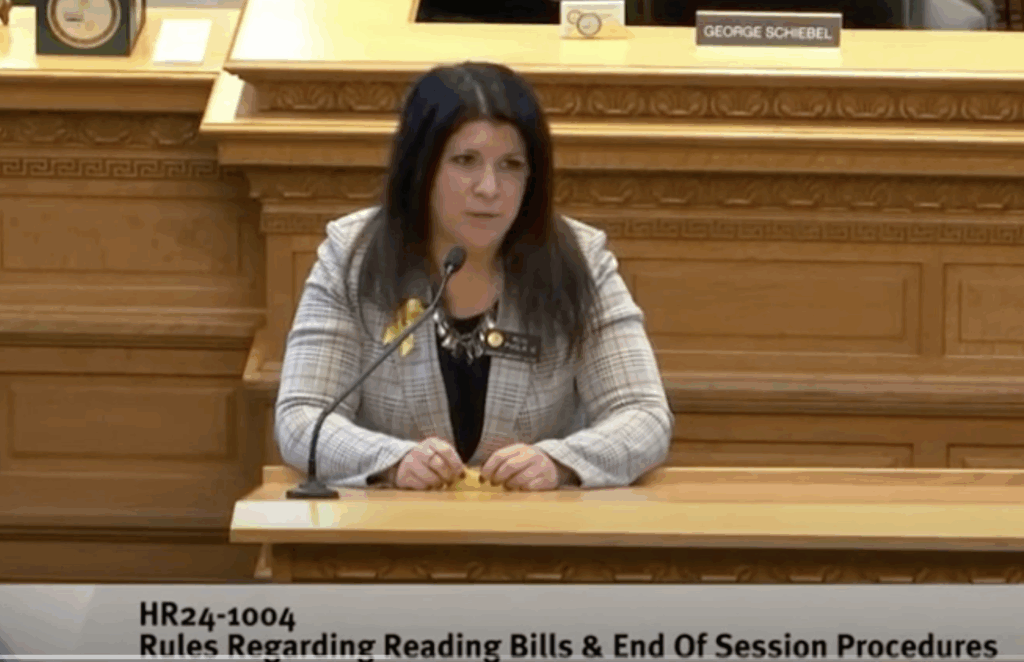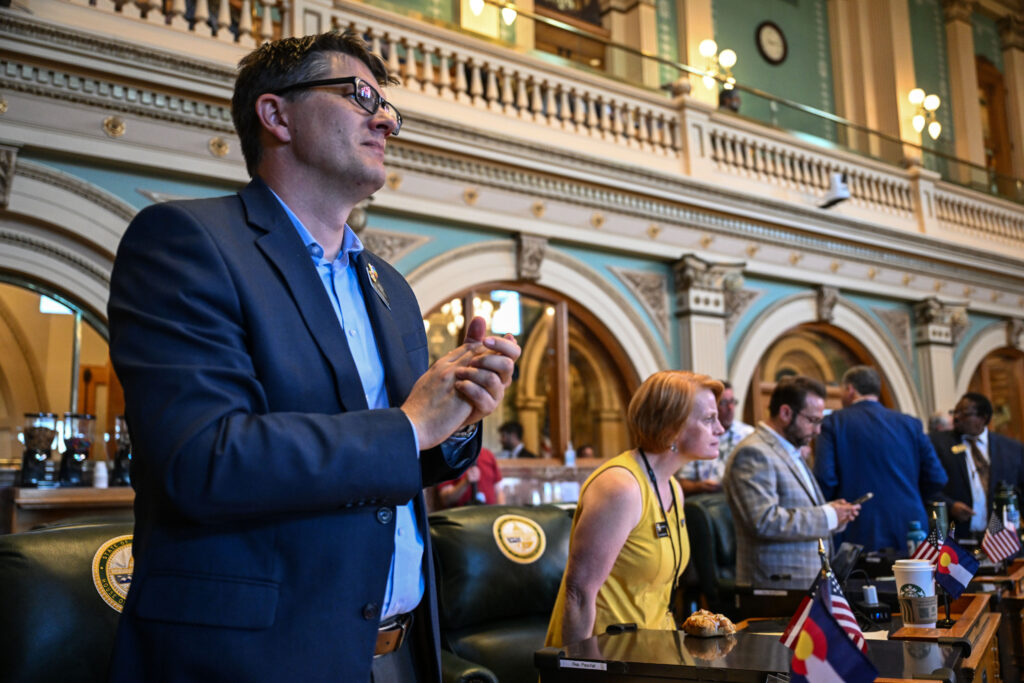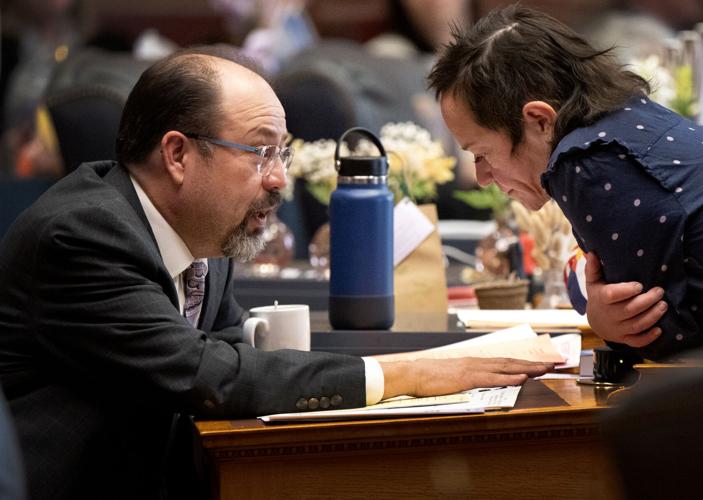Bill for more independent judicial discipline commission passes committee
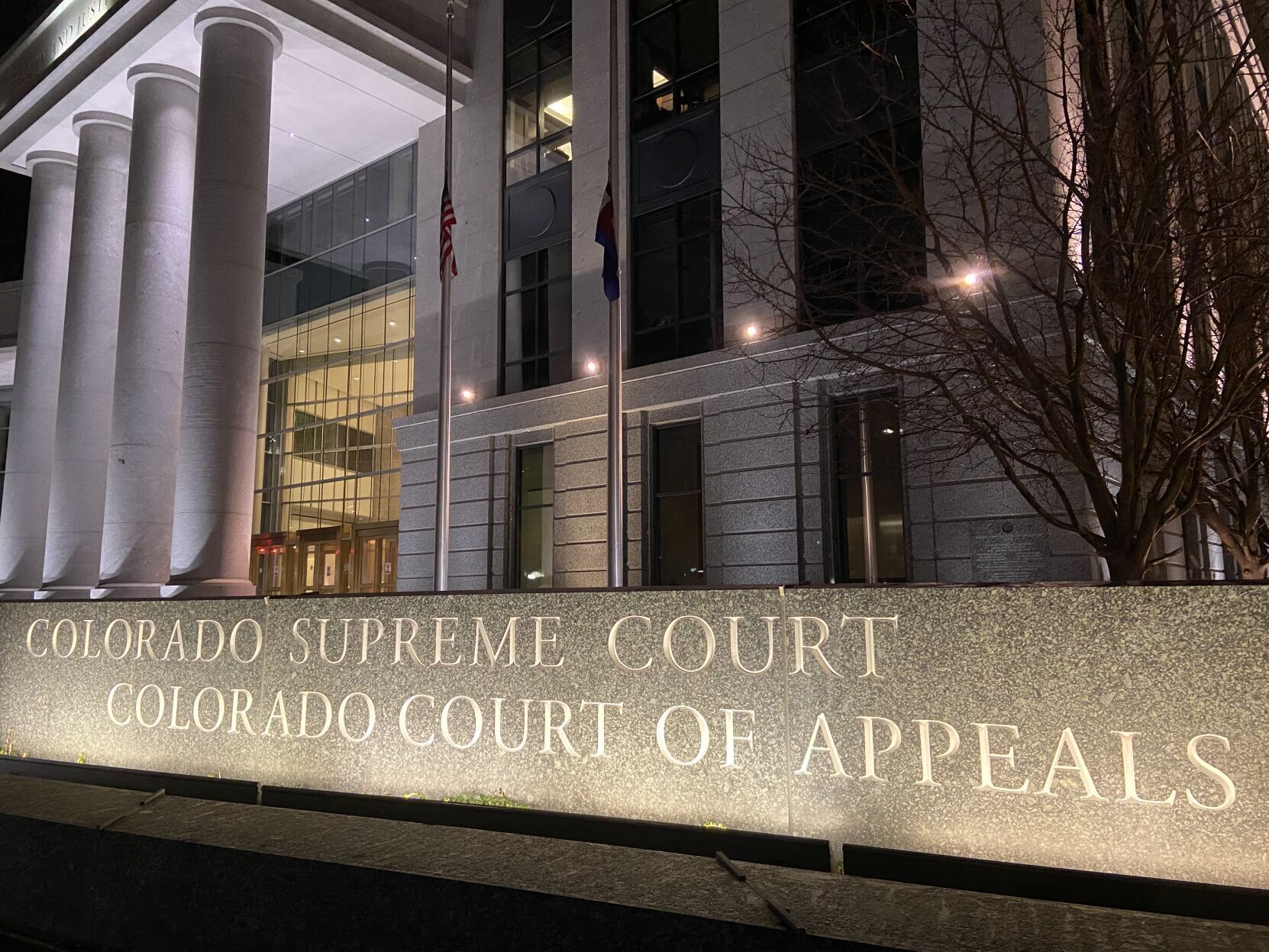
A bill to independently fund the Colorado Commission on Judicial Discipline was passed by a Senate committee Thursday a week after state Supreme Court justices gave it their measured approval.
Senate Bill 22-201 heads to the Senate Appropriations Committee for its consideration. If approved. it moves to the full Senate and then the House.
The bill aims to create an independent office of judicial discipline within the Judicial Department, essentially moving it out from under the Supreme Court, so it can be funded with taxpayer dollars. The Colorado Constitution creates the discipline commission, but requires the Supreme Court to come up with the rules under which it must operate.
Still in the bill is an interim committee composed of four members from each chamber of the General Assembly to study over the next several months whether additional changes to how judges are disciplined need to be addressed.
The committee’s composition was one of several items Chief Justice Brian Boatright and Justice Monica Márquez questioned during a Senate Judiciary hearing last week. The justices said the committee should include members from the judiciary, as well as lawyers and other groups with a stake in the outcome.
The committee could also study whether voters should consider a constitutional amendment to make the discipline commission wholly independent of the court.
At Thursday’s hearing – the bill was approved unanimously – co-sponsor Sen. Pete Lee, D-Colorado Springs, said the interim committee was to be “inclusive as much as possible.”
“The outreach and input of an interim committee should be inclusive, collaborative and with a broad stakeholder process. The public needs to know judges are held accountable just as all others are to be held accountable.”
Said bill co-sponsor Sen. Bob Gardner, R-Colorado Springs: “The Commission on Judicial Discipline and the Judicial Department and the Supreme Court came together to deal with a very complex and nuanced set of interests in order to partner for judicial accountability and transparency.”
The justices last week complained that any requirement for the department to investigate all allegations of misconduct and turn over its findings to the discipline commission would be onerous and expensive. The bill, however, only seeks to ensure the commission is able to obtain any information necessary to investigate on its own, including a raw complaint, whether the department chooses to investigate or not.
An amendment added Thursday was a provision that would allow victims to have a say in the judicial discipline process, a measure Boatright said was important to include.
The commission and the Supreme Court have been at odds over how it is funded. Currently the court approves the commission’s budget, which is funded through annual attorney license fees collected and distributed by the Office of Attorney Regulation Counsel, which also sits beneath the court.
The commission has said publicly it has been unable to get any funding for a special investigator it hired last year to look into the circumstances of an alleged quid-pro-quo contract given to a former Judicial Department official to prevent a threatened tell-all sex-discrimination lawsuit.
Commissioners took the unusual step of telling legislators during public hearings in January that the court was attempting to control how it investigates cases by withholding the funding. At issue, according to documents obtained by The Gazette, was the commission’s reluctance to turn over billing records for payment which could show the direction of its inquiries and who was being questioned.
Boatright in late January approved $75,000 for the commission to pay its own investigator, according to an email Attorney Regulation Counsel Jessica Yates sent to the commission, but the issue of how it would be paid remained a stumbling block.
The commission has said its investigation has not yet begun, even though five other inquiries have been ongoing for months.
The commission could look into allegations contained in a two-page memo the department was given in 2019 about judicial misconduct that went undisciplined for years, some of it by Supreme Court justices.
Additionally, the commission could look into what the justices knew about the memo and its contents, as well as whether any of them was aware of the contract deal. The justices in February 2021, when news of the memo became public, public said they were seeing it for the first time, but never acknowledged whether they were aware of it.
Months later, Justice Melissa Hart revealed in depositions that the court had been generally aware of the memo from former Chief Justice Nathan “Ben” Coats, who allegedly approved the contract to avoid the lawsuit.



